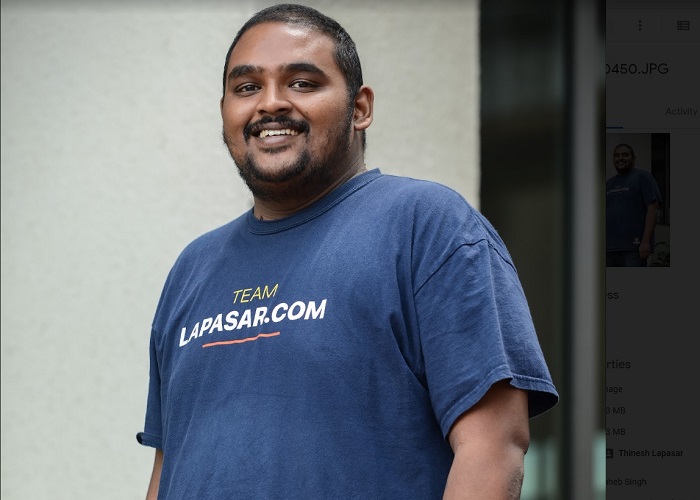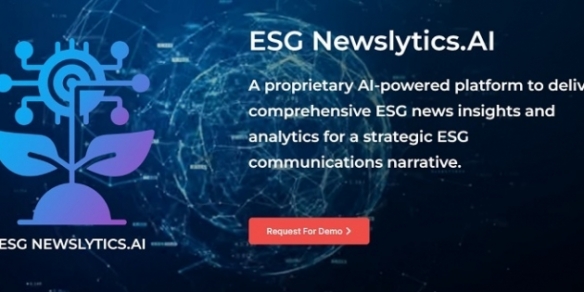Digerati50: Thinesh Kumar flattens playing field for the small guys
By Tan Jee Yee March 6, 2022
- Thinesh Kumar’s procurement platform, Lapasar, gives small vendors chance to win
- One of biggest lessons learnt is to never bring an unfinished product to the market

Digital News Asia (DNA) continues its series that profiles 50 influencers who are helping shape Malaysia’s Digital Economy, from Digerati50 2020-2021 (Vol 4), a special biennial print publication released in July 2020. The digital copy can be downloaded from the sidebar link.
The following in an expanded version of the article which first appeared in print edition in June 2020.
It was 2016. Thinesh Kumar was beginning preparations to take his healthcare products and solutions company, Raxxon Diagnostic Sdn Bhd, to the next level. He submitted a tender for a large project, only to discover something disheartening – the tender itself already had a predetermined winner. He, and the other participants, basically had no chance.
This lack of transparency in the procurement process frustrated Thinesh. While discussing the matter with his friends Lakshman Das and Sharath Bani, they came upon a breakthrough idea. Why not create a platform that connected sellers or distributors to corporations rather than go through a complicated tender process?
Thinesh would eventually sell Raxxon Diagnostic and use the funds to launch Tenderin Sdn Bhd, the company that would eventually develop their idea into a full-fledge solution. And thus, Lapasar was born.
Lapasar is, to put simply, an online marketplace similar to Lazada and Shopee, only that it’s B2B rather than B2C. The platform essentially brings the convenience of B2C e-commerce services to corporate clients looking to buy office needs and supplies. The idea is to make procurement faster and cheaper, eliminating the need for tenders.
More importantly, Lapasar is designed to remove barriers for small businesses to get big clients. Accessing corporate clients can be challenging for vendors, as the typical registration process can take weeks, with no guarantee that orders will be given. On Lapasar, vendors can register on their platform and gain immediate access to large corporations.
It’s a core idea that works. As of 2019, Lapasar has achieve a transaction growth of over 20 times since its inception, with a database of over 10,000 suppliers and services from all over Malaysia.
In 11 July 2019, Lapasar secured US$500,000 (RM2.09 million) funding to accelerate growth. The investment round was led by Singapore-based VC firm SeedPlus, investing alongside KL-based VC firm NEXEA.
[Ed: Thinesh raised a US$1.82 million round in July 2021. Prior to that, in June 2020, after this article was published, he pivoted Lapasar in adapting to the opportunities thrown up by the pandemic. Today Lapasar is a B2B wholesale procurement platform for small retailers.]
Thinking back, Thinesh didn’t think that they would get this far. “We started off the business with positive and negative assumptions. We believed we could make procurement processes better with our free platform. But at the same time, is this really something we can do?”
While the prototype for Lapasar worked at smaller scales, they quickly found that it was too skeletal to serve larger corporations. They gathered as much information they needed to make a version that worked, but by then they realised that they were short of funding.
It was not until a previous investor of Raxxon Diagnostic offered some funding that Lapasar could get back on track. By then, Thinesh knew it was a point of no return – the product would have to be finished, one way or another.
The solution worked. Lapasar’s first client was Telekom Malaysia. “We knew no one there. NO connections. It was just pure hustle. A combination of our enthusiasm, energy, can-do spirit, even naivety that they somehow liked,” Thinesh recalls. The platform of course was still a work in progress but there’s nothing like getting one of the largest companies in the country as the anchor client for one’s new product. The team put in the hours necessary to ensure the launch platform was good enough and then kept improving on it daily. Lapasar has since gotten around 20 corporate partners, the likes of Tenaga Nasional and Malaysia Airports. These companies may have 60 to 70 business units each, contributing to the aforementioned transaction growth.
A tougher challenge, however, was in finding vendor partners to join the platform. It was a humbling experience for Thinesh, who faced a lot of reluctance. They needed about five to ten active vendors in the Klang Valley in order for Lapasar to work. Hundreds of calls were made to vendors, eventually leading to almost 200 signing up.
If anything, the whole process of birthing Lapasar has been a tremendous journey of growth for Thinesh. One of the biggest lessons he has learned is to never bring an unfinished product to the market. “We did that early on because there was a lot of pressure, and we couldn’t wait anymore. We brought a system that is unfinished to the market, and almost lost our first client,” he says.
“Even if things take longer, we now know that it’s more important to assure its quality.”
Another lesson? Never trust assumptions. For Thinesh, positive and negative assumptions will be there, but what’s important is to persevere and believe in one’s product.
Digerati50 2020/2021 is proudly sponsored by Maxis - Powering Malaysia's 5G era.
Related Stories :


